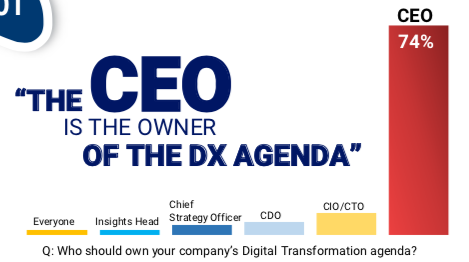
However, the same research—the 2019 Digital Transformation Survey conducted by data science and management consulting firm Cobena Business Analytics and Strategy Inc.—found that at a time when digital tech had already been part and parcel of the Filipinos’ daily lives, most of these organizations were just starting their digital transformation “journey.”The results of the survey, which was conducted from Oct. 3 to Nov. 8 this year among 180 participants (40 percent managers, 60 percent C-level executives) from 40 industries, were discussed by Cobena CEO and president Francis del Val at the recent 2019 PH Data Leaders Summit in Taguig City, which had the theme “Data-Driven Philippines.”
Other summit speakers included national statistician and civil registrar general Dennis Mapa, who talked about the Philippines Statistics Authority’s initiatives on data analytics, and National Economic and Development Authority Director-General Ernesto Pernia, who delivered the keynote address.
Del Val said that based on the study, three key factors stood out as main barriers to organizations’ digital transformation: the lack of resources, the lack of adoption guidance, and that digital transformation isn’t being considered urgent.
“[One question companies ask is] ‘If we want to digitally transform our organizations, how do we even start?’ Well if you don’t see it as urgent, it isn’t going to happen,” he adds.
According to the study, 74 percent of respondents believe it is the CEO who should “own” a company’s digital transformation agenda. However, while 63 percent of C-level executives feel that such agenda is already being discussed, most managers still believe it is not, with only 30 percent saying they believe digital transformation is being tackled in board meetings.Del Val said large corporations, which had more resources at their disposal, were not exactly at the forefront of digital transformation, as the study showed that 77 percent of these organizations said they found the topic hard to understand.
“Digital transformation is [all about] agility, creativity and risk-taking—words that don’t necessarily [apply] to big corporations,” Del Val said.
Family corporations, he added, even face a bigger challenge: the generation gap. According to the study, 46 percent of family corporations identified this as a unique barrier to their digitalization.
But the organization that apparently needs the most help migrating to digital, as the study revealed, is the one Filipinos depend on the most: government. “Think of all the barriers government is faced with—and mind you, it’s not always about finances. The problem with digital transformation is that its single biggest resource is human capital, [and the] people who need to make the decisions, people who need to implement the digital transformation—they have no clue how to do it,” Del Val said.
So what’s the remedy? These three are digital transformation’s best enablers, according to the study: learning workshops, the creation of right job roles, and adoption guidance. “You need to be able to engage with other parties, and work with an ecosystem [of companies] that can show you how to do it,” he said. “You also need to be able to have more ‘chiefs,’ and that’s a journey your company needs to chart on its own. But with some of the organizations we’ve worked with, they have their chief data officer, chief customer experience manager.”
Aside from the results of the Cobena study, summit participants also learned about emerging Asia-Pacific trends in artificial intelligence (AI) and data, which were tackled by Kerry Lau, head of marketing in Asia-Pacific and Japan for Acoustic, a platform that provides marketers with the tools they need to create campaigns and experiences for their target customers.
The trends these days, according to the study, are: the director of marketing data is the “hottest new role” in organizations; the development of hyper-personalized content, thanks to AI and machine learning; the transformation of digital marketing agencies into “consulgencies” (consultancy and agency in one); how stricter privacy legislation help marketers perform better, as it helps establish deeper trust with consumers, and the importance of customer-centricity.
“The road ahead is messy. Digital transformation is all about rolling up one’s sleeves and making it happen,” Del Val said. INQ